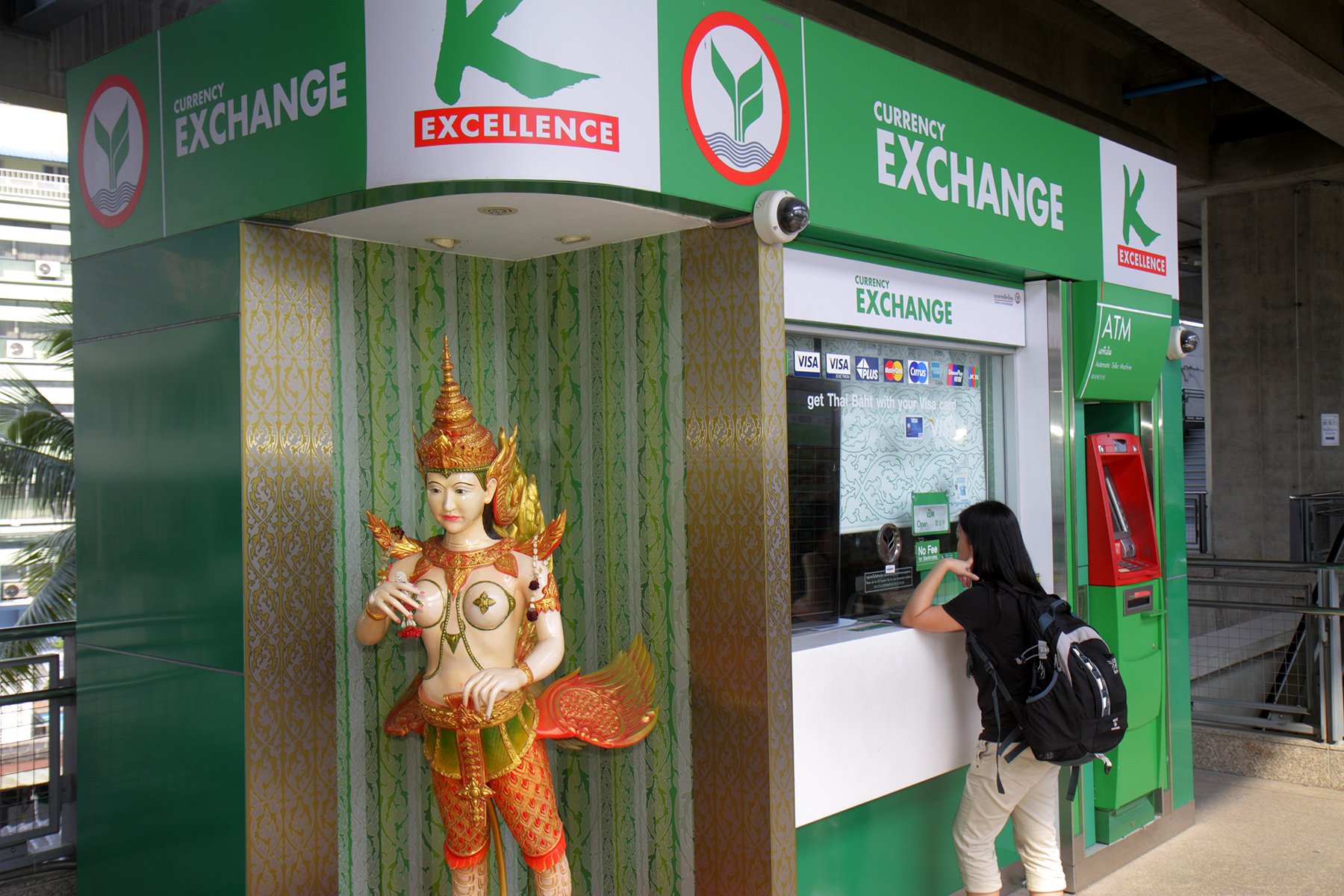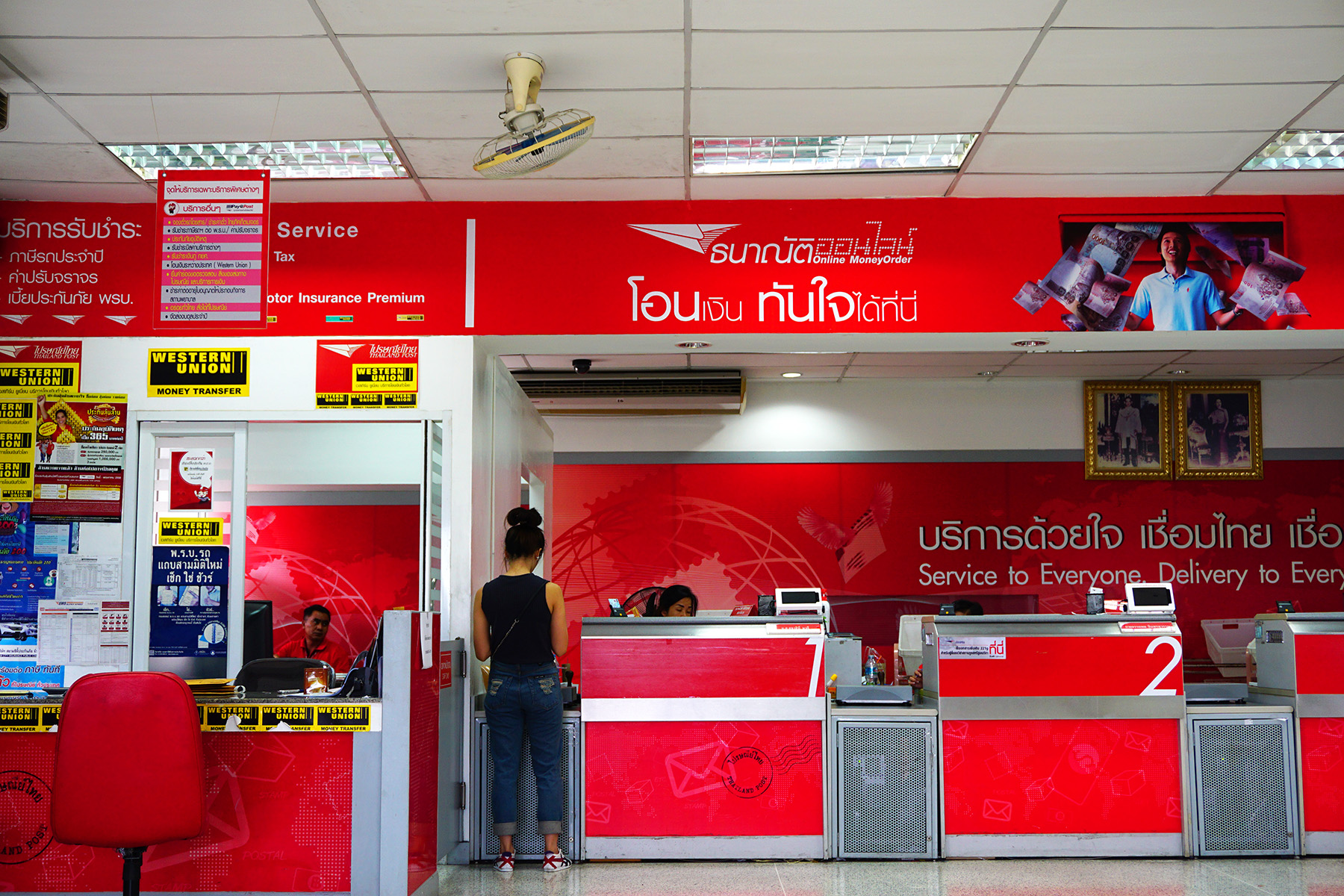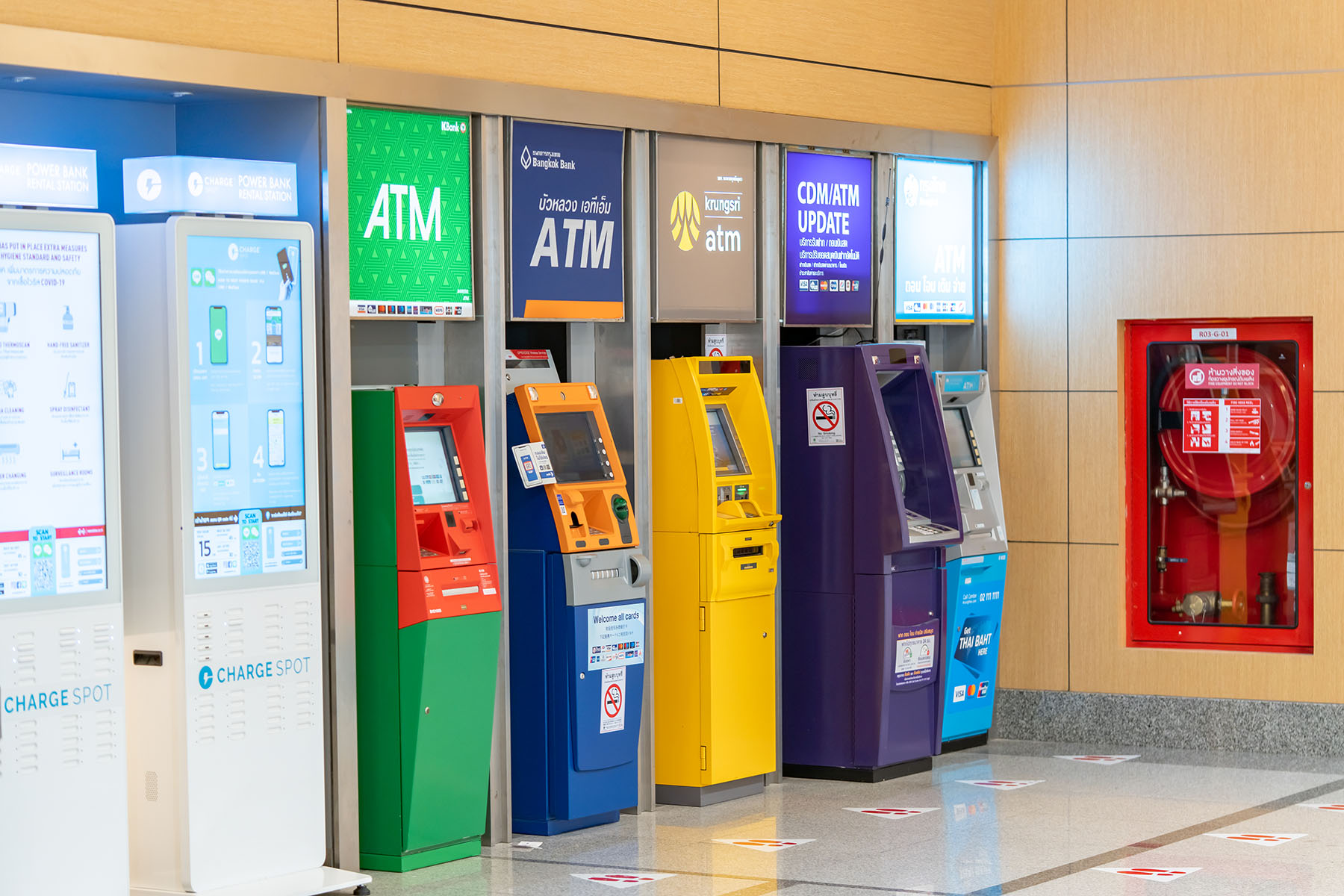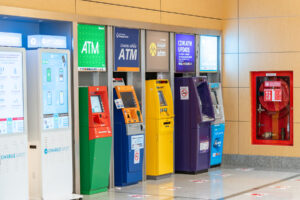When you move to Thailand, you’ll need to understand the country’s financial system and regulations. This is especially important if you plan to transfer money back to your home country.
Notably, Thailand has strict rules on outbound payments leaving the country, so expats may find they have fewer international payment options than they might initially have expected.
Read on to learn about international money transfers in Thailand, including advice on the following:
Wise
For seamless international money transfers at a fraction of your bank’s cost, choose Wise – a global leader in online transfers. Maximize your money’s impact, whether for personal or business needs.
International money transfers in Thailand
There are several methods of transferring money to and from Thailand. Therefore, weighing up the pros and cons of the services available is essential. Naturally, the most important priority is that the money arrives safely with the recipient. Still, you may also wish to prioritize speed or cost, depending on the urgency of the transfer.

Unfortunately, it’s not always easy to determine precisely how much it’ll cost to make an international money transfer (โอนเงินระหว่างประเทศ) from Thailand. For instance, the exchange rates (อัตราแลกเปลี่ยน) offered by providers may vary slightly, and they will charge a margin on top of these rates plus a transfer fee.
Notably, the Bank of Thailand sets strict restrictions on transferring money out of the country. This means that some transfer services, commonly available elsewhere, will only allow you to send money into Thailand, not out of the country. These may include providers like Wise.
As such, Thailand offers fewer international transfer options than most countries.
Online international money transfer services in Thailand
Specialist online money transfer services have become increasingly popular over the last decade, as they can offer quicker transfer speeds and (in some cases) cheaper fees than banks or wire transfer companies.
The service most commonly used by expats in Thailand is DeeMoney in Bangkok. It allows users to send money to 55 countries around the world.
DeeMoney
DeeMoney is primarily app-based but has two branches in Bangkok.
Before sending money, you must provide photographic identification (e.g., your passport) and take a selfie via the app. Once you’ve been approved, you can theoretically send up to ฿800,000 per day, though limits may differ depending on the country where you’re sending the funds.

The transfer speed will also vary, though customers can make next-day payments to 48 countries using the ‘DeeNext’ service.
DeeMoney provides live exchange rates on its website, allowing you to compare the rates available to those offered by your bank. Additionally, it charges a flat transaction fee of between ฿125 and ฿150, plus VAT at 7%.
Skrill
Expats living in Thailand can also use Skrill to transfer money abroad.
Skrill enables you to send money via debit card, credit card, or bank transfer. There are no charges on debit card transactions, which are processed instantly. However, credit card payments are subject to a 2.99% fee. Bank transfers take up to three business days to clear.
Importantly, anyone using Skrill must factor in a 4.99% markup on the standard exchange rate, which can add up to a significant cost if you make a large payment.
PayPal
PayPal is a well-known provider of international money transfers.
However, stricter rules introduced in Thailand in December 2022 mean it’s no longer a viable option for expats who don’t have Thai citizenship. This is because anyone registering a personal PayPal account in Thailand must now provide their Thai national ID number.
International money transfers in Thailand by traditional bank
If you have a Thai bank account, you can transfer money abroad. Payments are usually made using the SWIFT (Society for Worldwide Interbank Financial Telecommunication) system.
A bank transfer is one of the safest international transfer options, as banks must adhere to strict regulations. For example, Thailand’s Anti-Money Laundering Act requires that these financial institutions request photographic identification for transactions of ฿50,000 or more. For transfers from ฿100,000, you must also provide the recipient’s details. In addition, you must declare high-value transfers over ฿2 million to the Anti-Money Laundering Office (AMLO – สำนักงานป้องกันและปราบปรามการฟอกเงิน).
However, banks will usually only allow customers to make online international transfers of up to ฿50,000 at a time.
Costs of international bank transfers in Thailand
Thai banks usually charge two types of fees:
- A flat transaction fee
- A margin on top of their exchange rate
Transaction fees vary but are usually a standard sum (e.g., ฿500), regardless of the value of the transfer. However, additional costs are sometimes levied on transfers to specific countries.

In some instances, the recipient of the money may be charged an inward remittance fee, which will be deducted from the amount they receive.
There are usually three fee options when making an international payment:
- BEN: You’ll pay a flat fee for sending the payment
- OUR: You’ll pay both your and the recipient’s fee
- SHA: The charges are shared between sender and recipient
The exchange rate your Thai bank will offer you is called the selling rate (อัตราการขาย) (TT). Banks make money on transfers by adding a currency conversion spread, a margin on top of the standard exchange rate. You’ll need to consider this and the transaction fee when pricing up the cost of sending money. Indeed, additional fees may apply if you pay via credit card.
You can find the latest selling rates for Thailand’s biggest banks below:
How long do international bank transfers in Thailand take?
This will depend on four factors:
- Sender’s bank
- Recipient’s bank
- The transfer destination
- The type of service you use
Generally speaking, you can expect transfers using the SWIFT system to take between one and five days.
However, quicker services may be available. For example, SCB uses third-party Blockchain technology to offer faster payments in four currencies:
- Euro (€)
- Pound sterling (£)
- Singapore dollar (S$)
- United States dollar ($)
These transactions are processed within one business day.
How to make an international money transfer in Thailand by bank
You may need to sign up for your bank’s outward remittance service before transferring funds internationally. This usually depends on how much money you’re sending.
You may also be asked to provide identification and proof of the income source. However, some banks will only request these documents after you reach a specified transfer limit.

To make a transfer, you’ll need the following information:
- Recipient’s name and address
- Their account number
- Their bank’s SWIFT code
- Their international bank account number (IBAN), specifically for European and Middle Eastern banks
Most banks will only process international payments during business hours.
How to receive an international money transfer in Thailand by bank
If someone wants to send you money from abroad, you’ll need to give them the following information:
- Your name
- Your bank account number
- Your bank’s SWIFT code
The SWIFT codes for the biggest Thai banks are as follows:
- Bangkok Bank: BKKBTHBKXXX
- Kasikorn Bank: KASITHBKXXX
- Krungthai Bank: KRTHTHBKXXX
- Siam Commercial Bank: SICOTHBKXXX
- TMBThanachart Bank: TMBKTHBKXXX
Regulations imposed by the Bank of Thailand require the sender to provide a reason for the transfer (e.g., paying for goods or services). In practice, the sender will need to choose from a list of ‘purpose of payment’ codes, which Thai banks are obligated to share with the Bank of Thailand.
In addition, your bank may charge you a fee to receive money from abroad. For example, Bangkok Bank charges 0.25% of the amount received (i.e., a minimum charge of ฿200 and a maximum of ฿500). Of course, your bank will also apply its buying rate (TT – อัตราการซื้อ) when converting the funds into Thai baht.
International money transfers via online and mobile banking
Mobile banking has become increasingly common in Thailand in recent years, with the biggest banks allowing customers to make international payments via their apps. However, restrictions apply to app-based payments. For example, SCB’s app only allows you to make payments to 12 countries in four different currencies. Therefore, the sender must complete an application form for other countries and higher-value payments.
The most popular digital payment service in Thailand is called PromptPay. This allows online banking customers to send money instantly from their bank’s mobile app. Overseas payments via PromptPay International are only available for transfers between Thailand and Singapore, with a maximum limit of ฿1,000 per day and transaction fee of ฿150. Expats who have Thai bank accounts are eligible to use PromptPay.
Wire transfers in Thailand
Popular international wire transfer companies, such as Western Union and MoneyGram operate in Thailand.
Notably, there is one significant difference between wire transfer services, online remittance providers, and traditional banks. The sender and recipient can transfer and receive money without a local bank account with a wire transfer.
Western Union
Senders using Western Union can make transfers online, via the app, or in-store. Available payment methods include bank cards, direct debit, or cash. The recipient can have the funds transferred directly to their bank account or visit a local store to pick up the money in cash.
Western Union sets a limit of ฿250,000 on online payments. Cash payments are made immediately, while bank payments take one to three days.

Remember, before sending money, you must register with Western Union and provide photographic identification in person at a store. The information required depends on whether you’re transferring the money to the recipient’s bank account or are sending cash for them to collect.
Once you’ve made a payment, you’ll receive a confirmation email containing a tracking link to check on the status of the transfer.
Western Union charges an up-front fee for transfers from Thailand plus a margin on the exchange rate, which you’ll need to compare with other options available. Unfortunately, its current fees and charges aren’t specified on its website.
MoneyGram
MoneyGram is also available in Thailand, but you can only send money via local stores.
To make a payment, you must provide identification and the recipient’s full name and location. You’ll also need their account number if you’re paying the money directly to the recipient’s bank account.
Funds are usually ready to collect at the recipient’s local store within 24 hours, and you can track the transactions online.
Like Western Union, MoneyGram doesn’t clearly detail its current fees or exchange rates online.
Foreign exchange brokers in Thailand
Specialist foreign exchange (FX or Forex) brokers enable users to send money internationally.
FX trading has been legal in Thailand since 2017 and is regulated by the Bank of Thailand and the Securities and Exchange Commission (สำนักงานคณะกรรมการกำกับหลักทรัพย์และตลาดหลักทรัพย์ – ก.ล.ต) (SEC). Despite this, you’ll struggle to find a local FX broker operating in Thailand.

Local expert
Jane Evans
Since the beginning of 2024, any remittances from overseas may be subject to income tax, so it is advisable to consider this when transferring money from other countries into Thailand.
The benefits of using FX brokers are that they often offer competitive and transparent fees and exchange rates, as well as 24-hour online support and tools such as currency conversion calculators.
To use an FX broker, you’ll need to sign up for an account and transfer the funds you want to send into the account. The broker will then exchange the money for you and send it to the recipient.
If you send money abroad regularly (e.g., for overseas mortgage payments or school fees), using an FX broker could give you access to better rates. However, if you only make transactions occasionally, you might find using a traditional option, such as your local bank, easier and more affordable.
Useful resources
- Bank of Thailand – provides the official exchange rates and international transfer regulations
- Anti-Money Laundering Office (AMLO) – declare transfers of over ฿2 million
- Securities and Exchange Commission(SEC) – government agency regulating the capital market
- PromptPay – information on the real-time interbank payment system in Thailand






